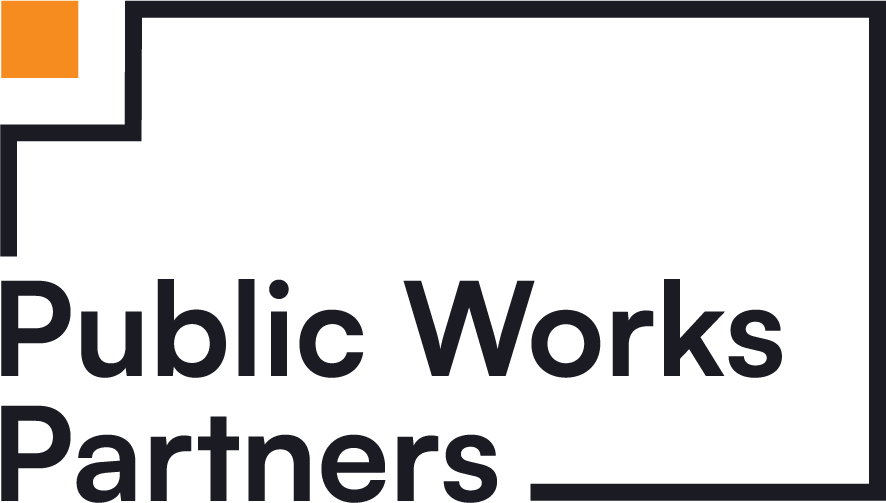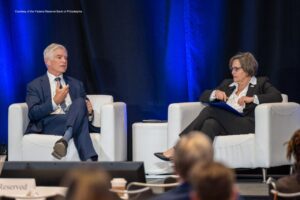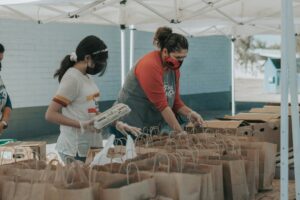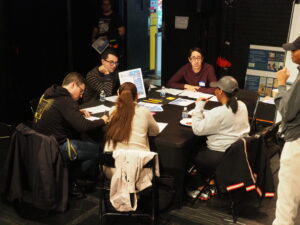Public Works shines the spotlight on Melissa Lee, showcasing her dedication to urban planning and community empowerment. At the core of her work lies a commitment to envisioning and actualizing meaningful community transformation, challenging inequities, and fostering inclusive planning practices. In this feature, we are thrilled to share her personal reflection exploring the intersection of her identity and professional endeavors. Get to know Melissa and learn more about her innovative approach to urban planning below!
What does it mean for you to be a Black woman leader in the urban planning space and how has your identity shaped your professional work?
I consider myself to be an urban planner, community organizer, social alchemist, and reformed public servant, steeped in the certainty that anything is possible when radical imagination pairs with action. Throughout my twenty-five-year professional journey, I have brought this certainty to multiple cities across the United States to envision what meaningful community transformation looks like. I work at the intersection of co-design or what is known as a combination of urban planning, urban design, and community engagement practices. I am hyper focused on envisioning equitable planning and engagement as more than just buzzwords and committed to making planning more responsive to the quality of life demands of all populations.
When manifesting any vision for a “better tomorrow” it requires group effort and the cultivation of cooperation. I have strived to achieve this through what I call a feminized style of leadership where I emphasize cooperative effort, the diversification of those participating in the process and creative exchange. As projects take shape, I utilize systems to align individuals around mission and values while initiating processes that breakthrough inertia and practices that no longer serve.
In many ways, I consider myself as a disruptor and my work disruptive because it recognizes that the profession of planning has furthered some of our greatest societal inequities – many of which we are still grappling with today. Therefore, we must perform work that aligns with challenging these inequities and encouraging alternatives. My work demands that we must recognize the responsibility to resist exclusion, prejudice, and injustice in our individual lives and as a collective. It is not enough to work for equity, we must actively pursue community-centered planning practices. No matter the project, authentic community engagement is a critical element in this pursuit.
And what do I mean? I mean understanding the context of a community and its local ecosystems – this takes a practiced skill set (i.e. data collection or facilitating community dialogue.) It’s about being able to identify and answer: Who is making local decisions? Who is setting community agendas and priorities? Who is influencing culture? It is an iterative, co-designed process centered on negotiating competing priorities and finding agreement on values that support an inclusive community. And it is centered on one of the most important questions to ask yourself, “what can we do differently now versus yesterday?” This must be the heart of our work.
Society at large has created systemic barriers and biases that negatively affect women in the workplace. As a black woman, I’ve had to navigate a unique set of barriers – otherwise known as the “double jeopardy,” the simultaneous experience of racism and sexism. The consequences of this have been and continue to be destructive, and detrimental to how I am perceived.
There is so much research that shows that for women, the gender and racial bias that persists in organizations and in society disrupts her trajectory in becoming a leader, but it doesn’t have to be this way. It’s simply not enough to identify and instill the “right” skills and competencies as if we live in a social vacuum. Combating these challenges requires a fundamental identity shift for both the disruptor and those around her. It’s also important that the larger global context supports her motivation to lead, increasing the likelihood that others will recognize and encourage her efforts, and not simply avoid doing so when she doesn’t look or behave like the status quo. As women disruptors, it’s important that we find spaces where women are centered and where we can have authentic solidarity with each other.
When put to task to apply my radical imagination paired with action, I always lead with one of my most favorite life lesson quotes by John Coltrane, “One positive thought produces millions of positive vibrations.” This quote is a beautiful reminder that vibrations create the rhythm of our lives. What we think – and the frequency in which those thoughts radiate – is foundational to setting the right tone and tenor for how we choose to live.
Melissa Lee






